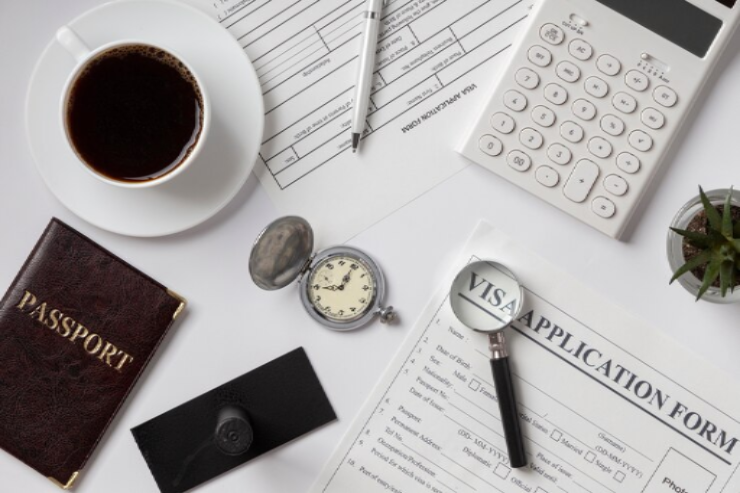Introduction:
For many individuals, obtaining a visa is the crucial first step towards realizing their dreams of traveling, studying, working, or immigrating to a new country. However, the visa application process can be complex and daunting, with one of the most common questions being: How long does it take to get a visa? In this comprehensive guide, we’ll delve into the factors influencing visa processing times, typical timelines for different types of visas, and strategies for expediting the process.
Factors Influencing Visa Processing Times:
- Visa Type:
The type of visa you’re applying for plays a significant role in determining the processing time. Different categories of visas, such as tourist visas, student visas, work visas, and immigrant visas, may have varying processing requirements and timelines. Generally, more complex visa applications, such as immigrant visas, tend to take longer to process compared to tourist or business visas.
- Country of Application:
Visa processing times can also vary depending on the country where you’re applying from. Factors such as the volume of visa applications, staffing levels at consulates or embassies, and local regulations can all impact processing times. Some countries may have streamlined visa processes for certain nationalities or visa categories, leading to faster processing times.
- Application Completeness:
The completeness and accuracy of your visa application also influence processing times. Missing or incomplete documents, errors in the application form, or discrepancies in supporting evidence can result in delays as consular officers may need to request additional information or clarification.
- Security and Background Checks:
In some cases, visa applications may be subject to security and background checks, particularly for certain visa categories such as immigrant or work visas. These checks may involve verifying the applicant’s criminal record, employment history, financial status, and other relevant information, which can extend the processing time.
Typical Visa Processing Times:
While processing times can vary widely depending on the factors mentioned above, here are some general guidelines for typical visa processing times for common visa categories:
- Tourist Visa:
Tourist visas typically have shorter processing times and may be processed within a few weeks to a few months, depending on the country and consulate workload.
- Student Visa:
Student visas often have longer processing times due to the need for verification of academic credentials and financial documentation. Processing times can range from a few weeks to several months, especially during peak application periods.
- Work Visa:
The processing time for work visas can vary significantly depending on the complexity of the application, the demand for skilled workers in the relevant field, and the country’s immigration policies. Processing times may range from a few weeks to several months or even longer in some cases.
- Immigrant Visa:
Immigrant visas, which are granted to individuals seeking permanent residency in a new country, typically have the longest processing times. Processing times can vary widely depending on factors such as visa category, country of application, and priority date. In some cases, the processing time for immigrant visas can stretch into years, particularly for highly sought-after visa categories or countries with backlogs in visa processing.
Strategies for Expediting Visa Processing:
While visa processing times are largely determined by external factors beyond the applicant’s control, there are some strategies that can help expedite the process:
- Submit a Complete Application:
Ensure that your visa application is complete, accurate, and accompanied by all required supporting documents. Double-check the application form and supporting documentation to avoid delays due to missing or incomplete information.
- Follow Instructions Carefully:
Carefully read and follow the instructions provided by the consulate or embassy regarding the visa application process. Failure to comply with instructions or provide required information may result in delays or rejection of the application.
- Opt for Expedited Processing:
Some countries offer expedited or priority processing services for an additional fee. If you’re pressed for time or have urgent travel plans, consider opting for expedited processing to shorten the processing time.
- Seek Professional Assistance:
Consider seeking assistance from immigration consultants or visa expediting services who can help navigate the visa application process, provide guidance on documentation requirements, and expedite the processing of your application.
Conclusion:
In conclusion, the time it takes to get a visa can vary widely depending on factors such as visa type, country of application, application completeness, and security checks. While visa processing times can be unpredictable and sometimes lengthy, understanding the factors influencing processing times and following strategies for expediting the process can help minimize delays and increase the likelihood of a successful visa application. Whether you’re planning a short-term trip, pursuing educational opportunities abroad, or seeking to work or immigrate to a new country, being informed about visa processing times is essential for a smooth and hassle-free experience.


